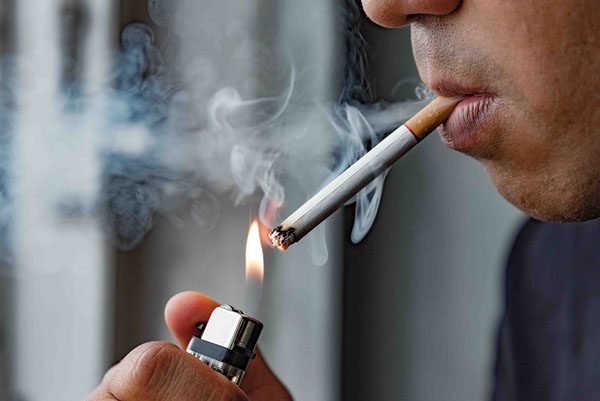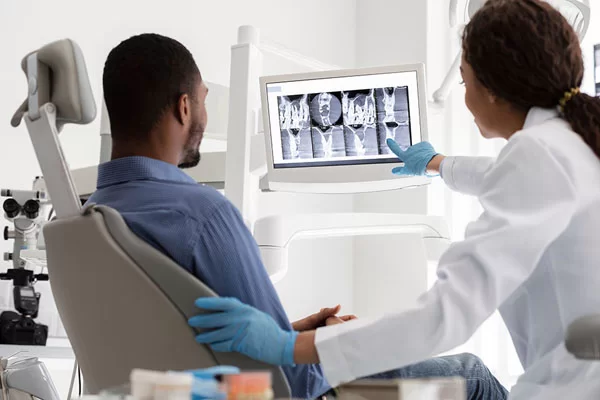Can You Get Dental Implants in Pearl?
Are you considering dental implants in Pearl, MS, but worried about how your smoking habits might affect the outcome? You’re not alone. While dental implants remain the gold standard for tooth replacement, smoking significantly impacts implant success rates and can lead to serious complications. Understanding these risks—and knowing your options—is crucial for making informed decisions about your oral health.
At our dental practice in Pearl, MS, Dr. Alexa Lampkin helps patients navigate the relationship between smoking and dental implant treatment. We proudly serve patients from Brandon, Richland, Jackson, and surrounding Mississippi communities. Schedule your consultation today by calling (601) 882-5600 to learn about your personalized implant treatment options.
How Smoking Affects Dental Implants: The Science Behind the Risk
Whether you smoke cigarettes, cigars, or use vaping products, tobacco introduces harmful chemicals that compromise your body’s healing process. Dental implants depend on osseointegration—the process where your jawbone fuses with the titanium implant to create a stable foundation for your replacement tooth. Here’s how smoking disrupts this critical process:
Blood Flow and Oxygen Restriction
Nicotine constricts blood vessels throughout your body, including those in your gums and jawbone. This restricted blood flow means less oxygen and fewer nutrients reach the implant site during the crucial healing period. Recent research shows that smokers experience a 140.2% higher risk of implant failure compared to non-smokers.
Compromised Immune Response
Smoking weakens your immune system’s ability to fight bacterial infections. This increases your risk of developing peri-implantitis—a serious condition causing inflammation and bone loss around dental implants. The soft tissues around your implant become more vulnerable to infection, potentially leading to early implant failure.
Poor Bone Quality and Delayed Healing
Long-term smoking reduces bone density in your jaw, making it harder for implants to anchor securely. The healing process slows significantly, extending your recovery time and increasing the likelihood of complications. Carbon monoxide in tobacco smoke further reduces oxygen in your blood, hampering the initial healing phase.
Increased Risk of Implant Failure
Studies consistently show that smoking affects implant success rates dramatically. Failure rates can reach up to 20% in smokers, compared to just 2-5% in non-smokers. This increased risk persists throughout the life of your implant, not just during the initial healing period.
Smoking Before and After Dental Implant Surgery
Pre-Surgery Risks
Smoking before dental implant placement creates several challenges:
- Compromised Gum Health: Smoking increases plaque buildup and accelerates periodontal disease progression. Healthy gum tissues are essential for implant success.
- Bone Quality Issues: Chronic smoking weakens jawbone structure, sometimes requiring bone grafting procedures before implant placement.
- Higher Infection Risk: Smokers face increased susceptibility to bacterial infections that can complicate dental procedures.
Professional Recommendation: Most dental professionals recommend quitting smoking at least four to six weeks before implant surgery to optimize healing conditions and reduce complications.
Post-Surgery Complications
The period immediately following dental implant placement is particularly critical. Smoking during this time can cause:
- Disrupted Healing: The suction motion involved in smoking can dislodge blood clots, leading to dry socket—a painful condition that significantly delays healing.
- Impaired Osseointegration: The three- to six-month integration period is when your implant bonds with surrounding bone. Smoking during this phase weakens this crucial connection.
- Increased Infection Vulnerability: Post-surgical wounds remain more susceptible to bacterial invasion in smokers.
The Benefits of Quitting Smoking for Dental Implant Success
- Dramatically Improved Success Rates: Non-smokers enjoy implant success rates of 95-98%, while smokers typically see rates between 80 and 90%. By quitting smoking, you align your odds with non-smoker success rates, significantly improving your investment in tooth replacement.
- Faster, More Comfortable Healing: Without nicotine and other toxins slowing your recovery, surgical sites heal more quickly and with fewer complications. Many patients experience less postoperative discomfort and return to normal activities sooner.
- Stronger Foundation for Long-Term Success: Quitting smoking improves blood flow and oxygen delivery throughout your mouth, promoting healthier bone and gum tissue. This creates a stronger foundation that supports your implants for decades to come.
- Reduced Long-Term Maintenance Issues: Ex-smokers face significantly lower risks of peri-implantitis and other complications that can threaten implant longevity. This means fewer emergency visits, less discomfort, and lower long-term dental care costs.
- Enhanced Overall Health Benefits: Beyond dental implant success, quitting smoking reduces your risk of oral cancer, heart disease, lung cancer, and countless other health conditions. The decision to quit creates positive ripple effects throughout your overall health and quality of life.
Practical Steps to Quit Smoking for Dental Implant Success
Professional Support Systems
- Healthcare Provider Consultation: Work with your doctor to develop a personalized quit plan
- Support Groups: Join local or online smoking cessation communities for motivation and accountability
- Counseling Services: Professional counselors can help address the psychological aspects of nicotine addiction
Nicotine Replacement Strategies
While nicotine patches and gum can help manage withdrawal symptoms, discuss timing with your dentist near you in Pearl, MS. Some nicotine replacement therapies can still restrict blood flow, potentially affecting healing.
Behavioral Modifications
- Identify Triggers: Recognize situations, emotions, or activities that prompt smoking urges
- Healthy Substitutions: Replace smoking habits with alternatives like sugar-free gum, exercise, or stress-reduction techniques
- Set Milestones: Create achievable goals and celebrate progress along your quit journey
When Dental Implants Fail: Recovery and Solutions
If smoking contributes to implant failure, it’s not the end of your tooth replacement journey. Our Pearl dental team offers:
- Implant Removal and Site Healing: Failed implants require careful removal and site preparation. We manage this process to minimize discomfort and optimize conditions for future treatment.
- Comprehensive Site Rehabilitation: Addressing underlying issues—including smoking cessation support—prepares your mouth for successful implant replacement. This might involve bone grafting, soft tissue management, or extended healing periods.
- Alternative Treatment Options: For patients unable to quit smoking, we discuss alternative tooth replacement solutions that might be more appropriate, including partial dentures or modified implant protocols with enhanced monitoring.
Frequently Asked Questions
We recommend abstaining from smoking for at least eight to 12 weeks following implant placement. The longer you can avoid tobacco, the better your chances of successful osseointegration and long-term implant stability.
While quitting is ideal, our Pearl dentist can work with you to minimize risks. This might include extended healing periods, additional monitoring, or adjunctive treatments to support your implant success. Honest communication about your smoking habits allows us to tailor your treatment plan appropriately.
The Mississippi Tobacco Quitline (1-800-QUIT-NOW) offers free counseling and support. Additionally, local healthcare providers in Rankin County can provide nicotine replacement therapy guidance and professional support throughout your quit journey.
While often marketed as “safer,” vaping still introduces nicotine and other chemicals that restrict blood flow and impair healing. Our Pearl dentist recommends avoiding all tobacco and nicotine products before and after dental implant procedures.
Your Path Forward: Scheduling Your Implant Consultation in Pearl, MS
Don’t let smoking concerns prevent you from exploring life-changing dental implant treatment. Our experienced team in Pearl, MS, works with patients at every stage of their smoking cessation journey to achieve optimal oral health outcomes.
Ready to take the first step toward replacing missing teeth with dental implants? Contact our Pearl dentist today at (601) 882-5600. We proudly serve patients from Brandon, Richland, Jackson, and all surrounding Mississippi communities with comprehensive dental care solutions designed around your unique needs and circumstances.


